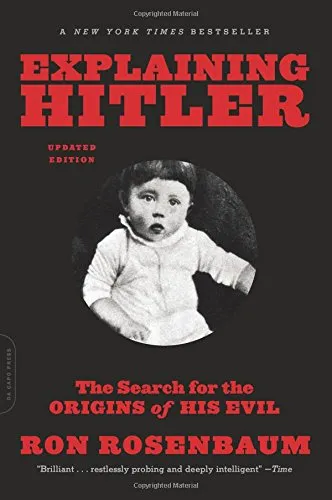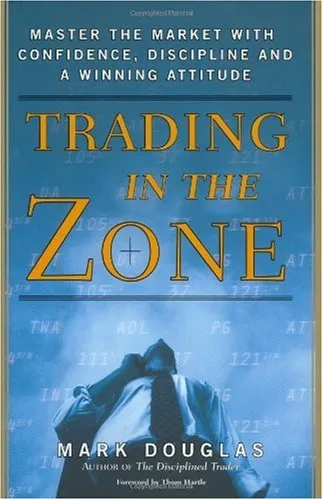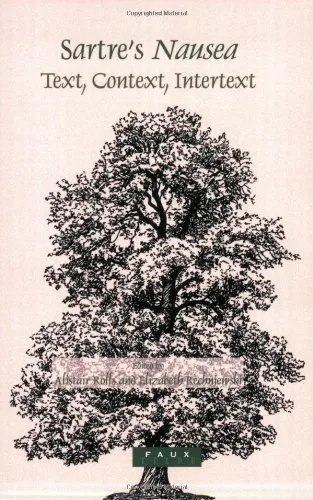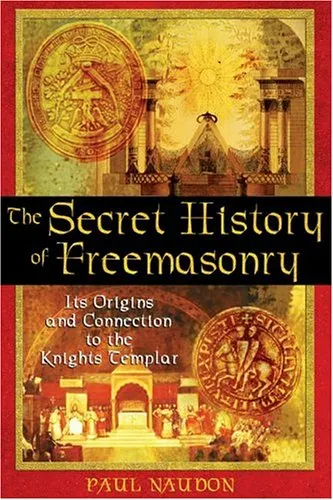Explaining Hitler: The Search for the Origins of His Evil
4.0
بر اساس نظر کاربران

شما میتونید سوالاتتون در باره کتاب رو از هوش مصنوعیش بعد از ورود بپرسید
هر دانلود یا پرسش از هوش مصنوعی 2 امتیاز لازم دارد، برای بدست آوردن امتیاز رایگان، به صفحه ی راهنمای امتیازات سر بزنید و یک سری کار ارزشمند انجام بدینکتاب های مرتبط:
معرفی کتاب
کتاب «Explaining Hitler: The Search for the Origins of His Evil» یکی از آثار مهم در بررسی تاریخی و روانشناسی معمای شخصیت آدولف هیتلر و سرچشمههای شرارت وی است. این کتاب نوشته "رون روزنبام" تحلیلی عمیق و چندوجهی از تفکر و عملکرد یکی از بحثبرانگیزترین شخصیتهای تاریخ معاصر ارائه میدهد.
خلاصهای از کتاب
کتاب «Explaining Hitler» سعی دارد به سوالهای بسیار پیچیده و اساسی پیرامون هیتلر پاسخ دهد: چگونه هیتلر به یکی از بزرگترین رهبران جنایتکار تاریخ تبدیل شد؟ چه عواملی در شکلگیری شخصیت و تصمیمات وی تاثیرگذار بودند؟ در این کتاب، روزنبام به کاوشی عمیق در آثار نویسندگان و محققین مختلف پرداخته و تفاسیر متعددی را در مورد علل و انگیزههای اقدامات هیتلر به بحث میگذارد.
نویسنده در بخشهای مختلف کتاب به سراغ گفتگوهای مستقیم با تعدادی از محققین برجسته این حوزه میرود و تلاشهای آنان برای توضیح و تحلیل رفتارهای هیتلر را به تصویر میکشد. روزنبام از دیدگاههای روانشناختی، اجتماعی و تاریخی برای بررسی هیتلر استفاده میکند و به دنبال یافتن پاسخی برای این پرسش کلیدی است که چه موضوعاتی منجر به بروز چنین شرارت عظیمی شد.
نکات کلیدی
- کندوکاو در نظریههای مختلف درباره انگیزههای روانی و اجتماعی هیتلر.
- تحلیل نقش فردی و جمعی در شکلگیری و پایداری رژیم نازی.
- مقایسه دیدگاههای مختلف محققین درباره هیتلر و بررسی اختلافات عقیدتی آنها.
- نقد و بررسی انتقادی بر برخی از تئوریهای مطرح شده درباره شرارت هیتلر.
جملات معروف از کتاب
"هدف ما فهمیدن نه فقط چیزهایی است که هیتلر انجام داده بلکه چرا آنها را انجام داده است."
"اگر شر هیتلر میتواند توضیح داده شود، آیا آن شر برای همیشه میتواند اتفاق بیفتد؟"
چرا این کتاب مهم است
این کتاب از اهمیت ویژهای برخوردار است زیرا تلاش میکند تا با ارائه دیدگاههای متنوع و متضاد، روشنگری جدیدی درباره یکی از مهیبترین دورههای تاریخ بشریت ارائه دهد. تحلیل دقیق و بیپرده روزنبام، از ارزش خاصی برخوردار است چرا که به خوانندگان قدرت تامل و تعمق در مورد نیروهایی که میتواند انسانها را به کنشی ناانسانی برانگیزد، میدهد. همچنین، این کتاب به محققین و دانشپژوهان علاقهمند به تاریخ جنگ جهانی دوم و شخصیتهای تاثیرگذار آن نیز دیدگاههای جدیدی ارائه میکند.
با خواندن این کتاب، میتوانیم درباره ماهیت و ریشههای شر عمیقتری تامل کنیم و شاید بتوانیم از وقوع دوباره چنین فجایعی جلوگیری کنیم.
Welcome to a comprehensive introduction to "Explaining Hitler: The Search for the Origins of His Evil," a profound exploration into one of history's most enigmatic figures. This book, penned by Ron Rosenbaum, delves deeply into the contentious debates and multifaceted theories surrounding Adolf Hitler's rise to power and the malevolent impact he had on the world. Through meticulous research and engaging narratives, Rosenbaum scrutinizes the question that has perplexed historians and scholars for decades: What made Hitler evil?
Detailed Summary of the Book
The book embarks on a journalistic journey, where Rosenbaum engages with prominent historians, psychoanalysts, philosophers, and biographers, each offering unique perspectives on Hitler's psyche and motivations. Rather than arriving at a singular explanation, the book navigates through various theories, each adding layers of complexity to the understanding of Hitler's evil.
Rosenbaum investigates different hypotheses, from the influence of Hitler's upbringing and personal traumas to the socio-political context of early 20th-century Germany. He explores the psychological theories set forth by experts like Dr. Gustav M. Gilbert and Dr. Walter C. Langer, who delved into Hitler's pathological narcissism and psychopathy. In parallel, the book examines cultural and historical explanations, such as the impact of World War I and the Treaty of Versailles, which allegedly fueled Hitler's nationalistic fervor.
What makes "Explaining Hitler" particularly compelling is its refusal to simplify or definitively categorize Hitler. Rosenbaum presents a mosaic of interpretations, showing how diverse scholarly views can illuminate different facets of Hitler's character. By painting a nuanced portrait, the book encourages readers to contemplate the broader implications of attributing evil to such figures.
Key Takeaways
- The book fosters an understanding that there is no singular reason for Hitler's evil, but rather a confluence of factors and influences.
- It emphasizes the importance of examining historical figures through multiple lenses, including psychological, cultural, and political perspectives.
- Readers gain insight into the complexities surrounding the discourse on morality and evil in the context of historical analysis.
- Rosenbaum challenges readers to grapple with the ethical ramifications of how we explain and interpret evil.
Famous Quotes from the Book
"The quest to understand the origins of Hitler's evil leads us into the darkest corners of the human psyche and the staggering depths of historical complexity."
"In seeking to explain Hitler, we are tasked not just with recounting history, but with pondering the nature of evil itself."
Why This Book Matters
Rosenbaum's "Explaining Hitler" is crucial reading for anyone interested in World War II history, psychology, or moral philosophy. Beyond recounting the atrocities committed under Hitler's regime, the book serves as an exploration into the nature of evil—one that compels us to reflect on the conditions and choices that allow such malevolence to flourish.
The book's value lies in its refusal to provide easy answers. Instead, it invites readers to engage with a broad spectrum of interpretations and to appreciate the inherent complexity in explaining historical figures of extreme notoriety. "Explaining Hitler" matters not only as a historical inquiry but also as a moral investigation into human nature and the perennial presence of evil in our world.
دانلود رایگان مستقیم
شما میتونید سوالاتتون در باره کتاب رو از هوش مصنوعیش بعد از ورود بپرسید
دسترسی به کتابها از طریق پلتفرمهای قانونی و کتابخانههای عمومی نه تنها از حقوق نویسندگان و ناشران حمایت میکند، بلکه به پایداری فرهنگ کتابخوانی نیز کمک میرساند. پیش از دانلود، لحظهای به بررسی این گزینهها فکر کنید.
این کتاب رو در پلتفرم های دیگه ببینید
WorldCat به شما کمک میکنه تا کتاب ها رو در کتابخانه های سراسر دنیا پیدا کنید
امتیازها، نظرات تخصصی و صحبت ها درباره کتاب را در Goodreads ببینید
کتابهای کمیاب یا دست دوم را در AbeBooks پیدا کنید و بخرید
1589
بازدید4.0
امتیاز0
نظر98%
رضایتنظرات:
4.0
بر اساس 0 نظر کاربران
Questions & Answers
Ask questions about this book or help others by answering
No questions yet. Be the first to ask!















